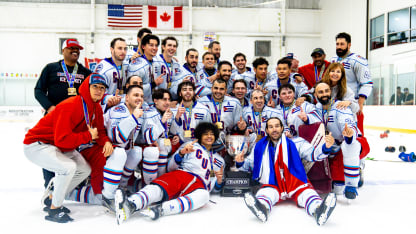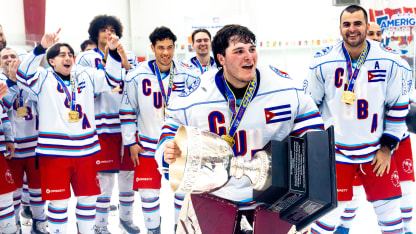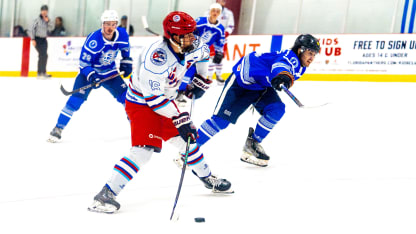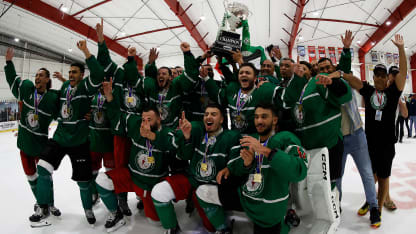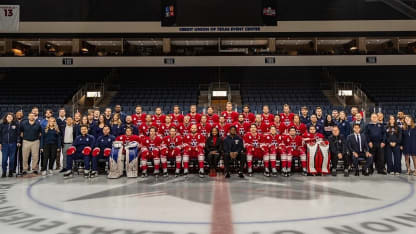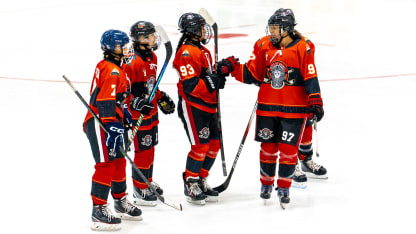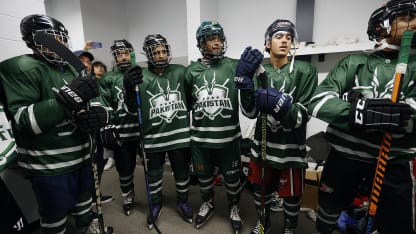This year’s LATAM Cup featured 52 teams and more than 1,100 players representing 17 countries, including Argentina, Armenia, Brazil, Chile, Colombia, Egypt, Greece, Israel, Lebanon, Mexico, Puerto Rico and Venezuela.
The teams competed in seven divisions: men's Division I, II and III, a women's division, and U12, U14 and U16 groups.
The NHL, NHL Players' Association and Florida Panthers were among the sponsors of the tournament, which was founded in 2018 by Juan Carlos Otero, a longtime Panthers fan, to help grow the sport within the Hispanic community both internationally and locally.
The LATAM Cup’s growth since 2018 prompted this year's tournament to take place at the Florida Panthers IceDen and Baptist Health IcePlex, the 2024 Stanely Cup champion’s new practice facility in Fort Lauderdale. Rob Knesaurek, who is the NHL senior vice president of community development and industry growth, also performed the ceremonial puck drop before the championship game between the Cuban American team and Greece.
Most of the countries and territories that competed in the tournament aspire to play hockey on the world stage but don't have rinks or suitable ice facilities that meet IIHF regulations, which would allow them to play in sanctioned tournaments or qualify for the Olympics.
The hope is that exposure from winning or competing in the tournament will persuade sports federations, Olympic committees or private investors in those countries and territories to support ice hockey, mainly by building rinks.
Algeria is one of those teams with big aspirations, and it entered the LATAM Cup determined to prove that winning the inaugural Dream Nations Cup tournament in East Rutherford, New Jersey, in the team's North American debut in April wasn’t a fluke.
Algeria did just that with an 8-3 victory against Egypt to win the men’s Division II championship on Sunday.
“I think we proved that we deserved to be here, deserved to win. We worked hard, and it paid off, finally,” said Nassim Boulakdem, an assistant coach and alternate captain for Algeria. “We hope it will help us grow faster now and help us in Algeria with the government, and I hope that it will bring more people to follow us and want to play hockey.”

